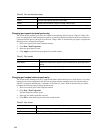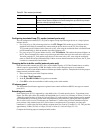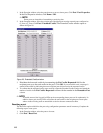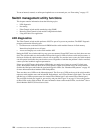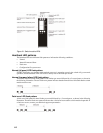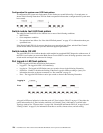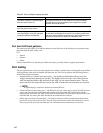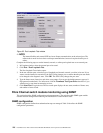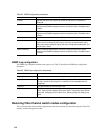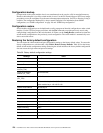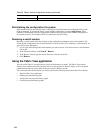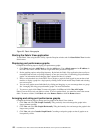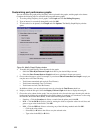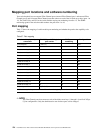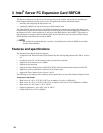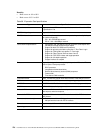
119
SNMP trap configuration
The SNMP trap configuration defines how traps are set. Table 35 describes the SNMP trap configuration
parameters.
Restoring Fibre Channel switch module configuration
This section describes switch module configuration restoration tasks that are performed using the Telnet CLI
interface and the management module.
Table 34. SNMP configuration parameters
Parameter Description
Contact Specifies the name of the person to contact for trap events. The default is
undefined.
Read community Read Community Authentication. A write-only field; the value on the switch
module and the SNMP management server must be the same. The default value
is Public.
Trap community Trap Community Authentication. A write-only field; the value on the switch
module and the SNMP management server must be the same. The default value
is Public.
Location Specifies the switch module location. The default is undefined.
Authentication trap Enables or disables the reporting of SNMP authentication failures. If enabled,
and the incorrect community string values are used, an authentication failure
event occurs and a notification trap is sent to the configured trap addresses. The
default value is False.
Write community Write Community Authentication. A write-only field; the value on the switch
module and the SNMP management server must be the same. The default value
is Private.
Table 35. SNMP trap configuration parameters
Parameter Description
Trap enabled Select this check box to enable or disable the trap.
Trap address Specifies the IP address to which SNMP traps are sent. The default is 10.0.0.1
for trap 1 and 0.0.0.0 for traps 2–5. A maximum of five trap addresses are
supported.
Trap port The port number on which the trap is set.
Trap severity Specifies a severity level to assign to the trap. Open the menu and select a
level. Traps must be enabled to access this menu. Trap severity levels include
Unknown, Emergency, Alert, Critical, Error, Warning, Notify, Info, Debug, and
Mark.



